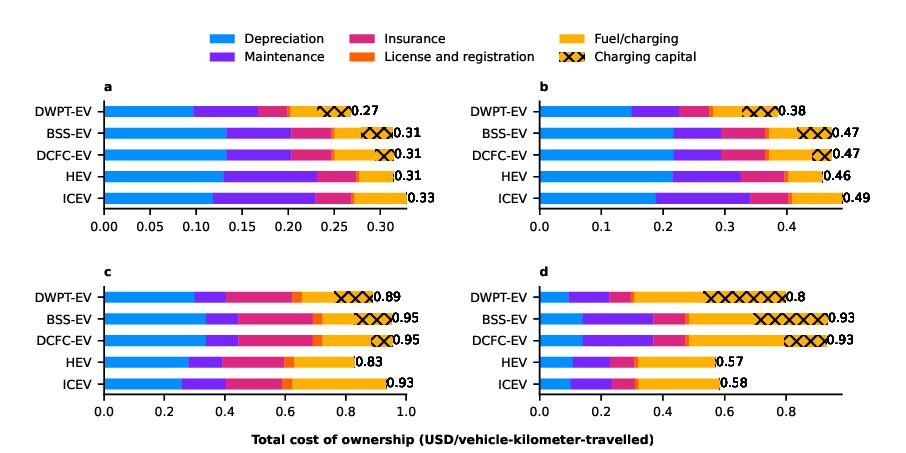Abstract:

The seamless adoption of electric vehicles (EVs) in the United States necessitates the development of extensive and effective charging infrastructure. Various charging systems have been proposed, including Direct Current Fast Charging, Battery Swapping, and Dynamic Wireless Power Transfer. While many studies have evaluated the charging costs and greenhouse gas (GHG) intensity of EVs, a comprehensive analysis comparing these systems and their implications across vehicle categories remains unexplored. This study compares the total cost of ownership (TCO) and GHG-intensity of EVs using these charging systems. Based on nationwide infrastructure deployment simulations, the change to TCO from adopting EVs varies by scenario, vehicle category, and location, with local fuel prices, electricity prices, and traffic volumes dramatically impacting results. Further, EV GHG-intensity depends on local electricity mixes and infrastructure utilizations. This research highlights the responsiveness of EV benefits resulting from technology advancements, deployment decisions, and policymaking.
See publication:
https://doi.org/10.1038/s41467-024-49157-5This publication pertains to:
Systems of SystemsPublication Authors:
- Noah Horesh
- David Trinko
- Jason Quinn